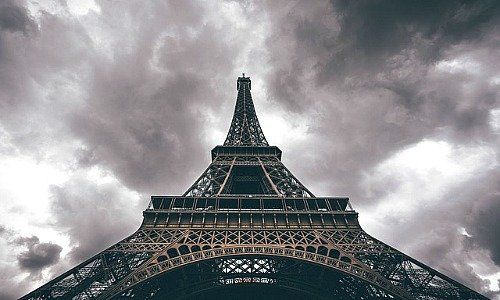To be sure, UBS, like Credit Suisse, has already had to plead guilty in the U.S. once: UBS for rigging Libor rates, and Credit Suisse for helping American tax cheats. Both banks won political support to ultimately be exempted from business bans following their respective pleas.
Astronomical Bail
Long before a settlement between France and UBS was possible (remember: the case has been simmering since 2012), French officials set a huge obstacle: 1.1 million euros ($1.3 billion) in «caution,» or a form of corporate bail.
Maybe French officials did UBS a back-handed favor: the cash, paid up in 2014, has been piling up 0.75 percent interest since then. The interest is sitting in the same French account as the principal.
By comparison, HSBC paid only 150 million euros, but nearly double that to finally settle earlier this year. Like UBS, the British bank was levied a 1 billion euro bail by French prosecutors. Like UBS, HSBC fought – but won a reduction.
Bowing to Pressure?
UBS CEO Sergio Ermotti and the bank's man for scandals, chief counsel Markus Diethelm (pictured below), didn't want shareholders to shoulder a billion-euro bail payment. UBS could have lived with 300 million euros – what HSBC eventually paid last year after fighting the original bail levied – Diethelm signalled last year.
That would have been on par with what UBS paid officials in Germany to settle a similar probe. It underscores the fact that UBS realizes that it needs to take responsibility and make amends, but won't bow to political pressure.

Political Saber-Rattling
Early on, UBS griped of a «extremely politically motivated» proceeding which hadn't always strictly followed rule of law. The dramatic criticism, in stark contrast with UBS' normally docile stance when caught out in wrong-doing, illustrates the bank's confidence – no way would UBS have wagered such harsh words against U.S. prosecutors back in 2008.
Meanwhile, French media were regularly fed new details of the investigation. UBS is clearly still smarting from the leaks: «After a more than six-year legal process, UBS is getting the chance to respond in court to the often unfounded and often leaked accusations, which violated the presumption of innocence and investigative confidentiality,» the bank told finews.com.
Thanksless Prosecution
Many of the French politicians, like finance minister Michel Sapin, who most vocally used the UBS investigation in their campaigns are no longer in office. It is left to prosecutors to translate the political noise into a criminal case that will stand up in court.
Specifically, prosecutors need to prove point-for-point how much money UBS attempted to hide from the taxman. In turn, this sum would indicate how much was laundered, which would influence the potential fine levied against UBS in case of guilt.

The bank and some ex-bankers are in the same boat: former private bank head Raoul Weil (pictured above), who was acquitted in a criminal case in the U.S. four years ago, is also charged in France, along with four other ex-UBS employees.
Beneath the bravado of the bank and its management, the French trial represents an incredibly delicate situation for UBS: a conviction would set it back in other countries where it has already settled.
Whether the French trial ends in the same disaster for prosecutors as the U.S. trial against Weil remains to be seen. A ruling isn't expected before next year.
- << Back
- Page 2 of 2



































